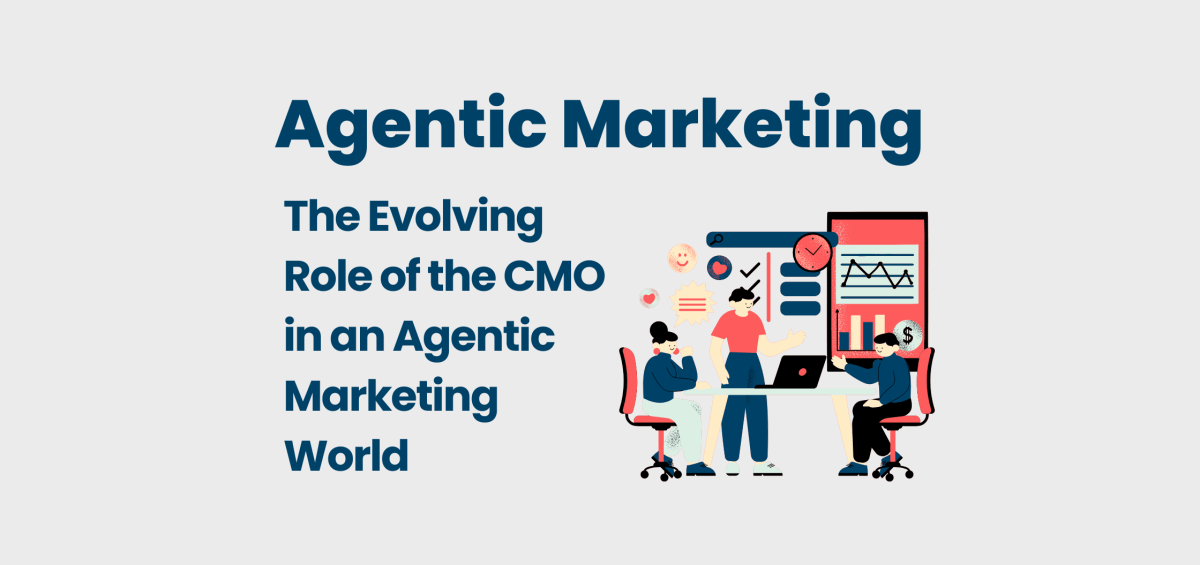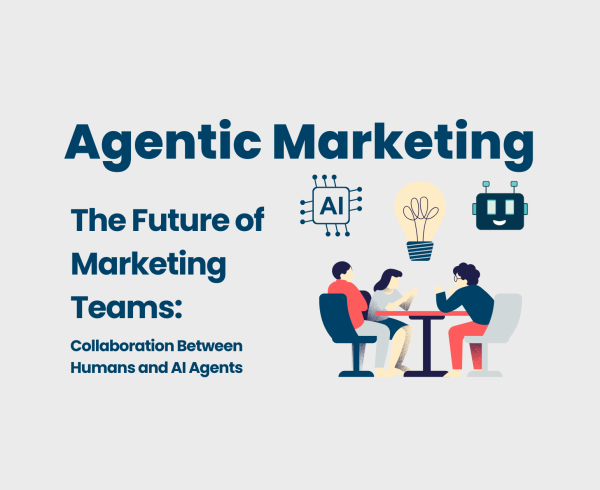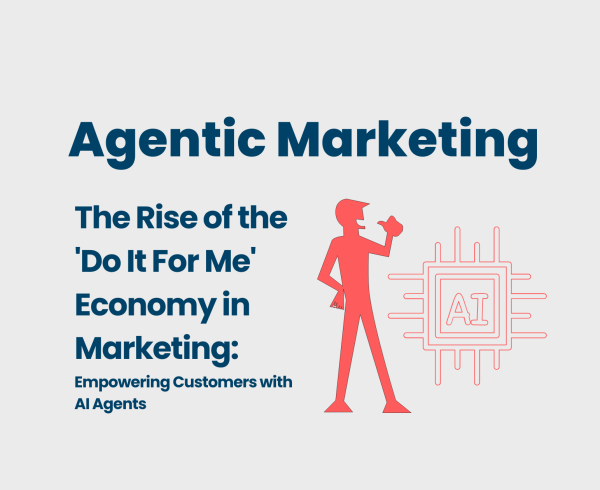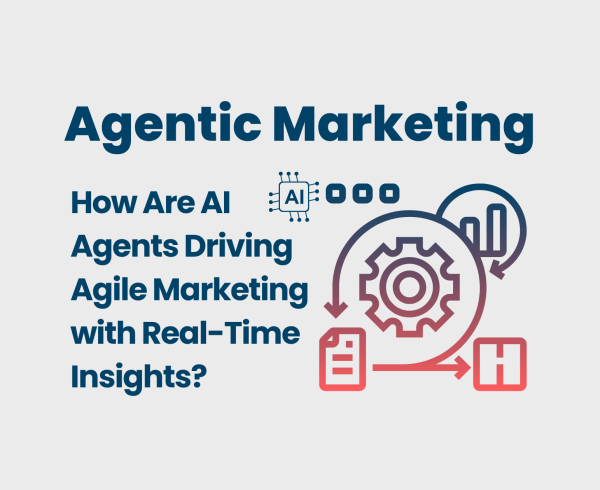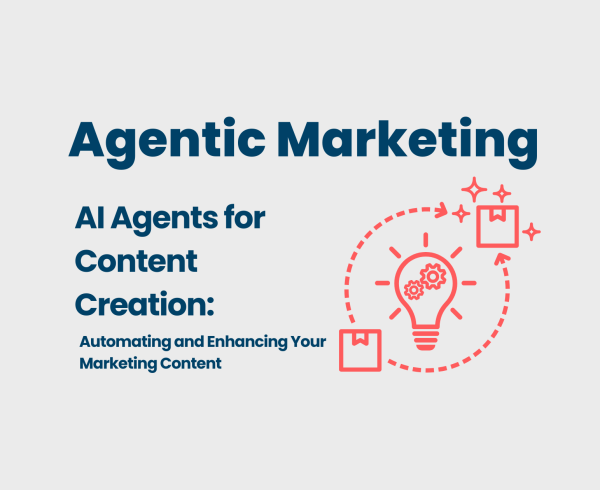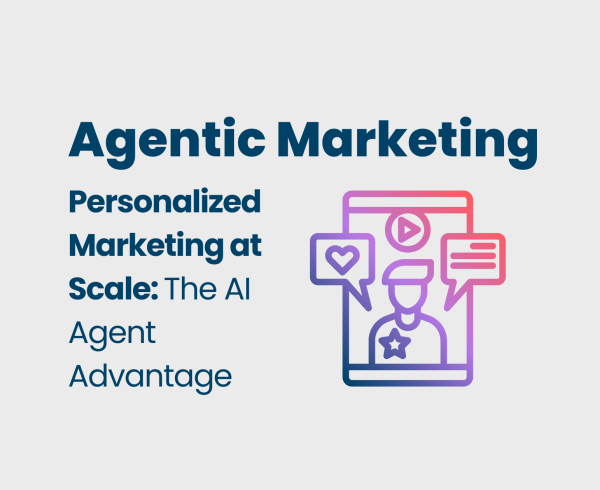Table of Contents
The Evolving Role of the CMO in an Agentic Marketing World
The marketing landscape is on the cusp of a significant transformation, driven by the increasing capabilities and adoption of AI agents. This evolution will not only impact marketing strategies and operations but will also fundamentally reshape the role of the Chief Marketing Officer (CMO). In an agentic marketing world, the CMO will need to adapt and evolve their leadership to harness the power of AI agents effectively. Here are ten refreshing perspectives on the evolving role of the CMO:
1. From Campaign Manager to Orchestrator of Autonomous Systems
Traditionally, CMOs have overseen and managed individual marketing campaigns across various channels. In an agentic world, the CMO’s role will shift towards becoming an orchestrator of autonomous marketing systems powered by AI agents.
Instead of directly managing every campaign detail, the CMO will set the overarching strategic goals and empower AI agents to execute and optimize campaigns autonomously. This requires a shift in focus from hands-on management to strategic oversight, guiding the AI agents towards achieving business objectives and ensuring alignment with the overall marketing vision.
2. From Data Analyst Supervisor to Insights Strategist
CMOs have long relied on data analytics to inform their decisions. However, the sheer volume and velocity of data in the digital age can be overwhelming. In an agentic marketing world, AI agents will handle much of the heavy lifting in data analysis.
The CMO’s role will evolve from supervising data analysts to becoming an insights strategist. They will work with AI agents to identify key trends, understand customer behavior at a granular level, and extract actionable insights that inform strategic marketing decisions. The CMO will focus on translating these AI-driven insights into effective marketing strategies and ensuring they are implemented across the organization.
3. From Content Production Overseer to Curator of AI-Enhanced Content
Content marketing remains a critical function, but the way content is created and managed is changing with the advent of AI agents. While human creativity will always be essential, AI agents will play an increasing role in content production.
The CMO’s role will evolve from directly overseeing content production to becoming a curator of AI-enhanced content. They will set the content strategy, define brand messaging, and guide AI agents in generating and optimizing content across various formats and platforms. The CMO will ensure that AI-generated content aligns with brand values and resonates with the target audience, while also leveraging AI to personalize content delivery and recommendations.
4. From Personalization Advocate to Architect of AI-Driven Experiences
Personalization has become a key differentiator in modern marketing. AI agents are uniquely positioned to deliver hyper-personalized experiences at scale. In an agentic marketing world, the CMO will be at the forefront of this transformation.
The CMO’s role will evolve from simply advocating for personalization to becoming an architect of AI-driven customer experiences. They will define the vision for personalized interactions across the entire customer journey and work with AI agents to implement these experiences. This includes leveraging AI for dynamic content adaptation, predictive offer optimization, and personalized customer journey orchestration, ensuring that every customer interaction feels relevant and valuable.
5. From Technology Adopter to Integrator of Autonomous Marketing Ecosystems
Marketing technology (MarTech) has become increasingly complex, with a multitude of tools and platforms. AI agents are adding another layer of sophistication to this landscape. In an agentic marketing world, the CMO will need to navigate this complexity effectively.
The CMO’s role will evolve from simply adopting new marketing technologies to becoming an integrator of autonomous marketing ecosystems. They will be responsible for ensuring that AI agents seamlessly integrate with existing MarTech stacks and work together effectively to achieve marketing goals. This requires a deep understanding of AI capabilities and the ability to strategically leverage these technologies to create a cohesive and efficient marketing operation.
6. From Customer Relationship Manager to Empowerer of AI-Augmented Interactions
Building and maintaining strong customer relationships is paramount for long-term success. AI agents are transforming the way brands interact with their customers. In an agentic marketing world, the CMO will lead this evolution.
The CMO’s role will evolve from directly managing customer relationships to empowering AI agents to augment and enhance these interactions. AI-powered chatbots and virtual assistants will handle routine inquiries, provide personalized support, and even proactively anticipate customer needs. The CMO will focus on ensuring that these AI-driven interactions are aligned with brand values and deliver exceptional customer experiences, while also identifying opportunities for human marketers to engage in more complex and strategic customer interactions.
7. From Budget Allocator to Optimizer of AI-Driven Resource Allocation
Marketing budgets need to be allocated strategically to maximize ROI. AI agents provide new opportunities for optimizing resource allocation in real-time. In an agentic marketing world, the CMO will leverage these capabilities.
The CMO’s role will evolve from simply allocating budgets to becoming an optimizer of AI-driven resource allocation. AI agents can continuously monitor campaign performance and autonomously adjust budget allocations to high-performing channels and initiatives. The CMO will oversee this process, ensuring that marketing spend is being used most effectively to achieve business objectives and maximize returns.
8. From Risk Mitigator to Champion of Ethical AI Practices
As AI agents take on more autonomous responsibilities in marketing, ethical considerations and data security become even more critical. In an agentic marketing world, the CMO will play a crucial role in ensuring responsible AI adoption.
The CMO’s role will evolve from simply mitigating risks to becoming a champion of ethical AI practices. They will be responsible for establishing ethical guidelines for the use of AI agents in marketing, ensuring compliance with data privacy regulations, and fostering transparency in AI operations. The CMO will lead the effort to build trust in AI-driven marketing among both customers and internal stakeholders.
9. From Team Leader to Collaborator with Intelligent Agents
The structure and dynamics of marketing teams will change significantly with the integration of AI agents. The CMO will need to adapt their leadership style to foster effective collaboration between humans and AI.
The CMO’s role will evolve from being solely a leader of human teams to becoming a collaborator with intelligent agents. They will need to cultivate a culture of trust and collaboration between human marketers and AI systems, ensuring that both work together seamlessly to achieve common goals. This requires understanding the strengths and limitations of both humans and AI and fostering an environment where both can contribute their unique capabilities effectively.
10. From Reactive Problem Solver to Proactive Strategist in an Evolving Landscape
The marketing landscape is constantly evolving, and the integration of AI agents is accelerating this pace of change. The CMO will need to be agile and forward-thinking to navigate this evolving landscape successfully.
The CMO’s role will evolve from being primarily a reactive problem solver to becoming a proactive strategist in an agentic marketing world. They will need to continuously monitor emerging AI trends, anticipate future challenges and opportunities, and adapt their marketing strategies accordingly. The CMO will be responsible for ensuring that their organization remains at the forefront of innovation in agentic marketing and leverages these powerful technologies to achieve sustainable growth and competitive advantage.
In conclusion, the rise of agentic marketing will bring about a profound transformation in the role of the CMO. They will transition from traditional management roles to become strategic orchestrators, insights strategists, experience architects, and champions of ethical AI. The CMO of the future will be a leader who embraces collaboration with intelligent agents, fosters a data-driven culture, and drives innovation in an ever-evolving marketing landscape. By adapting to these changes and embracing the power of AI agents, CMOs can lead their organizations to new heights of marketing effectiveness and customer engagement.

